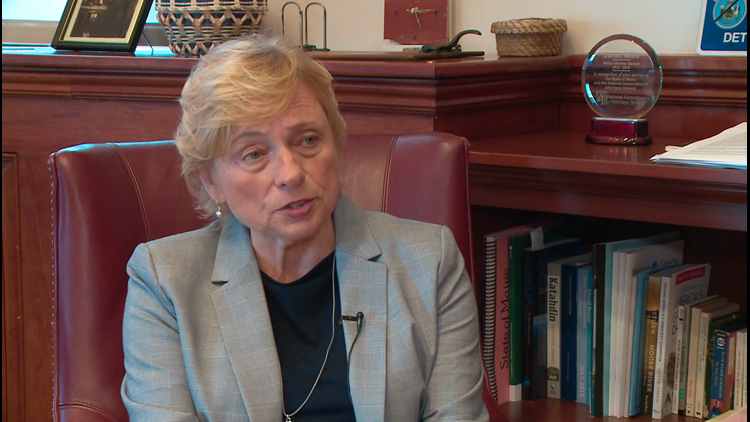AUGUSTA, Maine — Tribal leaders and lawmakers in Maine have begun to work together on potential reforms to a 1980 agreement in hopes of spurring economic development and addressing health, educational and social inequities on reservations across the state.
Members of the group want to start tackling such broad issues by focusing on a few specific recommendations this year, at a time when tribal leaders and new Democratic Gov. Janet Mills are trying to address decades of tense tribal-state relations. Task force chair Democratic Sen. Michael Carpenter said the group is next set to meet Aug. 9, and is set to release a report in December.
During the task force's first Monday meeting, tribal leaders said disputes over the sovereignty of Maine tribes has meant their communities have long faced too many barriers when trying to tackle issues from domestic violence to tribal-run gambling on their land.
"Every single time we try to do something within our reservation territories for economic growth, we get shot down," said Chief William Nicholas of the Passamaquoddy Tribe at Indian Township.
Under the 1980 settlement, the tribes agreed to be subject to Maine's laws and jurisdiction, except for "internal tribal matters" and hunting and certain fishing rights on tribal lands.
The settlement has long been interpreted as requiring Congress to specifically state whether a federal law applies to Maine tribes.
For example, the 2013 reauthorization of the federal Violence Against Women Act gave tribal courts limited authority to prosecute non-tribal members for domestic violence.
But the wording of the 1980 settlement has kept that law and many other federal laws from automatically applying to Maine tribes. Lawmakers passed a bill this year to rectify that, but it was held by Mills who plans to work on it and eventually sign it.
Tribal leaders have long argued it's time to take another look at the 1980 settlement's wording.
"It kind of puts us back in the Stone Age, not really being able to do anything," said Aroostook Band of Micmacs Chief Edward Peter Paul.
Penobscot Nation Chief Kirk Francis said the agreement doesn't reflect today's reality of more tribal governments moving toward self-governance.
"I think we're all clear it's not working or we wouldn't be here," he said. "Are we in a place to recognize the inherent sovereignty of the tribe? What would make the state uncomfortable about that?"
Chief Clarissa Sabattis, of the Houlton Band of Maliseet Indians, said tribes in other states often help to bring up struggling communities. "I don't want to have to become a municipality to enjoy those rights that should be ours inherently," she said.
Vice Chief Maggie Dana of the Passamaquoddy Tribe at Sipayik said tribes should be consulted before Maine passes new laws that impact their communities.
"The tribes just want to flourish and not be limited," she said.



